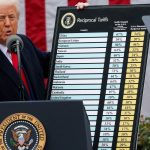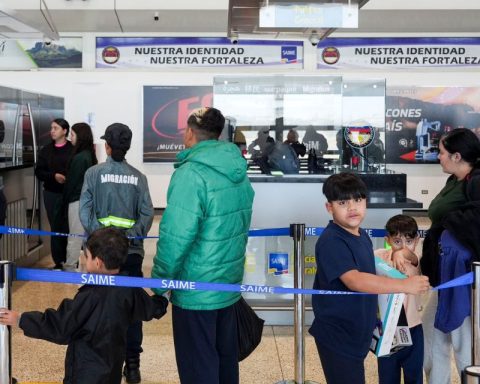The Brazil Steel Institute (IAB), which represents Brazilian steel manufacturers, defended the opening of dialogue between Brazil and the United States to reach an agreement on the increased rate to 25% on steel imports and US aluminum. 

In a note on Tuesday (11), the institute defended the restoration of the 2018 agreement made between the countries after the United States increased to 25%at the time, import tariffs on the Brazilian product.
“The Steel Brazil Institute and associated companies are confident of opening dialogue between the governments of both countries, in order to restore the flow of steel products to the United States on the basis agreed in 2018, due to the partnership over many years. And by understanding that the 25% tax on Brazilian steel products will not be beneficial for both parties, ”said the IAB.
In 2018, governments of the United States and Brazil negotiated the establishment of export quotas for the US market of 3.5 million tons of semi-bar and plates and 687,000 tons of laminates.
The IAB also points out that the United States and Brazil have long -term commercial partnership, historically favorable to the US.
“Considering, specifically, the trade of the main items in the steel chain – coal, steel and machines and equipment – United States and Brazil have a trading current of US $ 7.6 billion, the United States being surplus at US $ 3 billion surpluses ”Says the note.
Aluminum
The Brazilian Aluminum Association (Abal), which represents the Brazilian manufacturers of the product, expressed concern about the impacts of the new tariffs announced by the US government, which aims to impose an increase of 25% on aluminum imports. The entity stressed that it is not yet clear whether the new fare will replace the existing 10% surcharge or if it will be added to it, resulting in a total rate of 35%.
According to Abal, the immediate effects for Brazil will be felt first in exports and the difficulty of access of Brazilian products to the US market.
“Although Brazilian aluminum products are fully able to compete in highly demanding markets such as the American, either by the aspect of quality or sustainability, our products will become significantly less commercially attractive due to new surcharge,” the entity explains, in a statement .
The Abal also emphasized that, in addition to the impacts on the trade balance, indirect effects associated with the increase in “Brazil exposure to trading deviations and unfair competition” may occur.
“Products from other origins that lose access to the US market will seek new destinations, including Brazil, and can generate a saturation of the domestic markets at unfair prices,” he warns.
Aluminum manufacturers also advocated the expansion of discussions on the strengthening of trade defense instruments and the recalibration of national tariff policy, “in order to correct market distortions to protect national industry against unfair competition and adverse impacts from this new International Reconfiguration ”.
Minas Gerais
One of the main exporters of steel products, Minas Gerais could be one of the states most affected by the new tariffs imposed by the United States. The Federation of Industries of the State of Minas Gerais (FIEMG) said it carefully follows the consequences of the taxation of 25% in Brazilian steel and aluminum exports to the US. However, the entity pointed out that, because it is a taxation applied to all economies and not exclusively to Brazil, the scenario could place countries under more balanced competition.
In a statement, Fiemg President Flávio Roscoe said he expects Brazil to gain a competitive advantage, “since Brazilian industry complements the American.”
“Most of our exports are semi-elaborate products, which undergo industrialization processes in US companies, many of them affiliated to Brazilian companies. This can be a favorable factor for Brazil not to get hurt from this situation, ”he said.
São Paulo
The Federation of Industries of the State of São Paulo (FIESP) said to regret the decision of the United States and stressed that the measure directly affects Brazilian exporters, which provided 15% of the amount imported in steel products to the US in 2024.
“Brazil is far from being a commercial threat to the United States: over the past two decades, Americans have registered commercial surpluses with Brazil on 16 occasions,” he said in a statement.
The Federation stressed that many US products imported by Brazil, such as machines and equipment, use special tariff reduction regimes, “which facilitate the exporter’s access to our market through zero or close rates.”
“Therefore, FIESP trusts that the foundations for this historical relationship are sufficient for a rapid solution to be found, based on international trade rules, and the benefit of industries in both Brazil and the United States.”
















